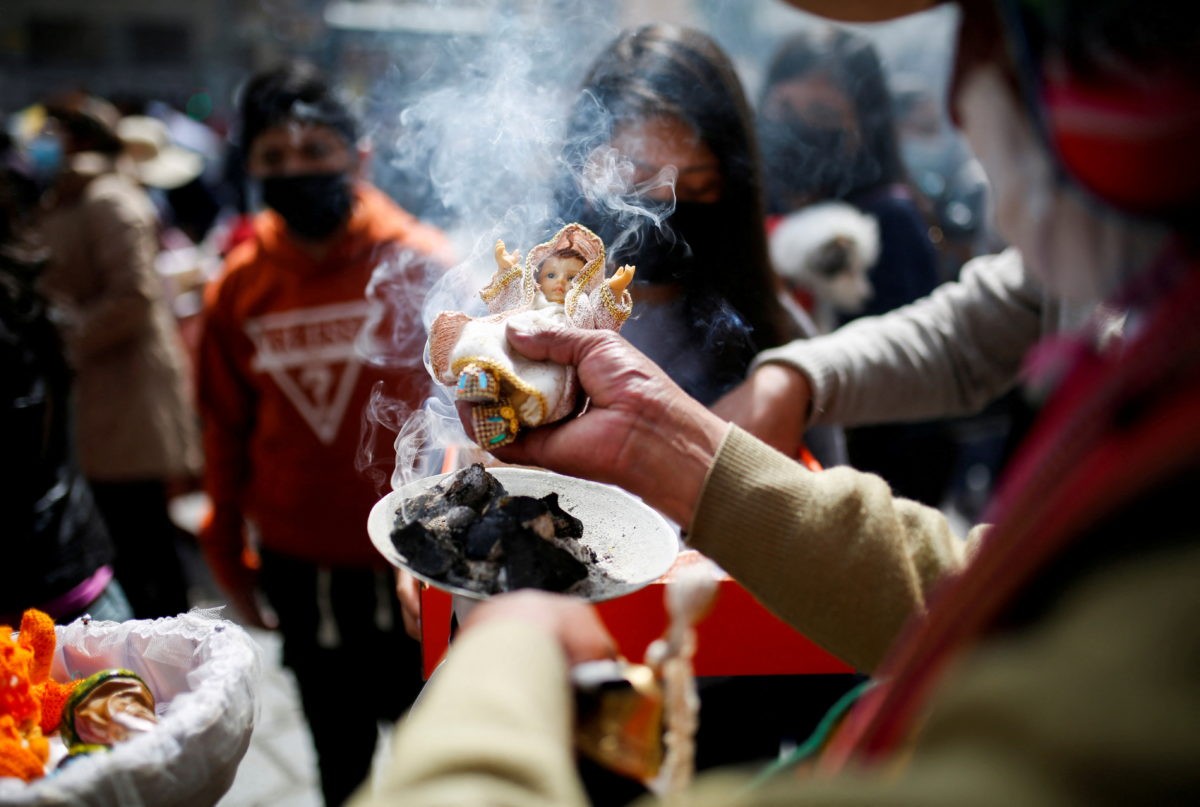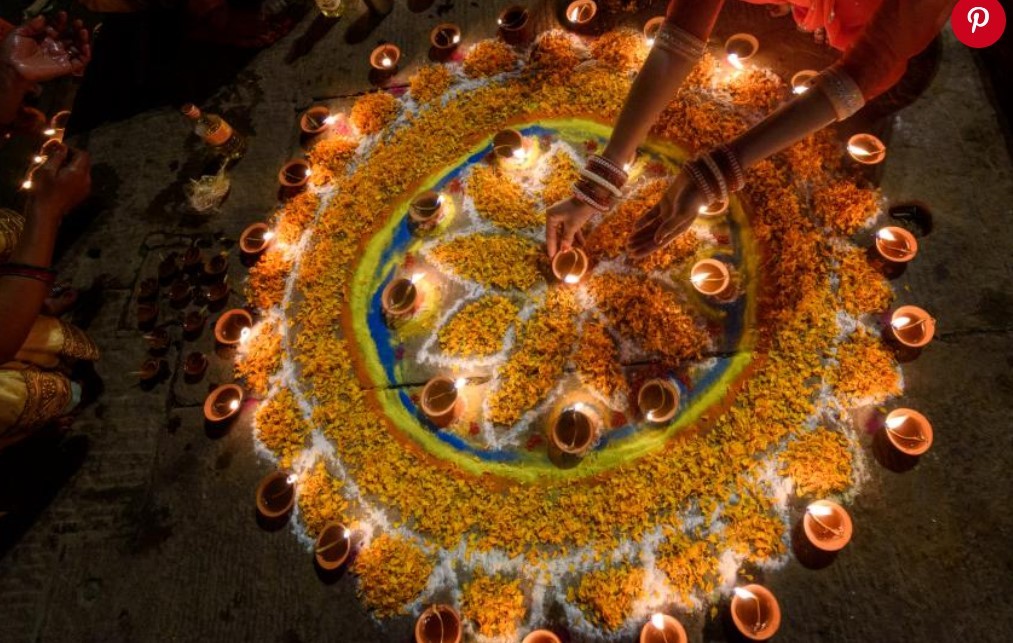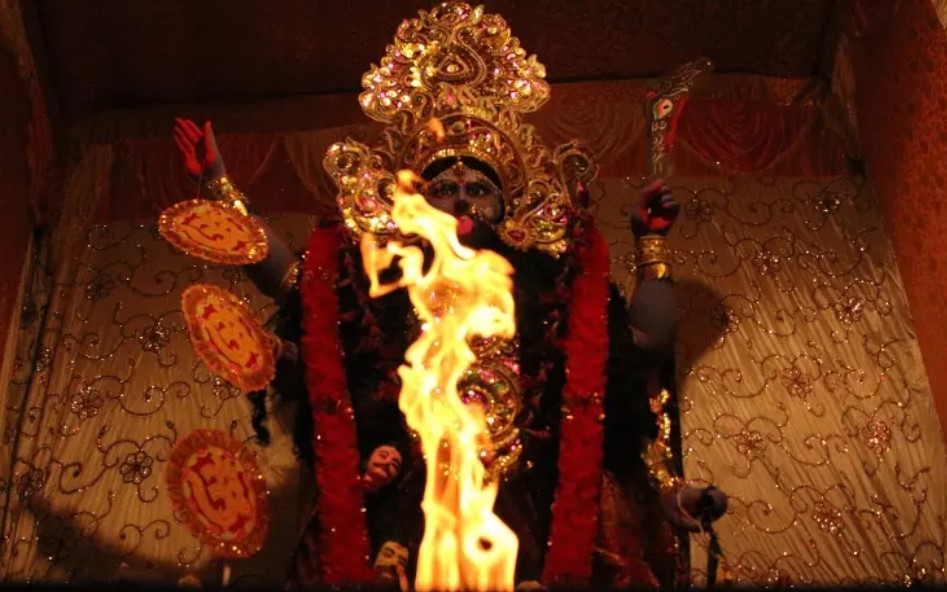How Diwali is Celebrated in Different Parts of India: Unique Deepavali Rituals
What is Diwali?
One of the most important holidays, Deepavali, or Diwali, is observed by millions of people worldwide. Millions of people celebrate the festival of light not just in India but all over the world.
The nation celebrates the auspicious Hindu festival of Diwali with great fanfare. It represents the triumph of knowledge over ignorance, good over evil, and light over darkness in the spiritual realm.
When To Celebrate Diwali?
The festival is observed on the fifteenth day of the Kartik month, which falls between mid-October and mid-November in accordance with the lunisolar Hindu calendar.
Learn more: Diwali Celebration: Most Significant Customs And Traditions
The origin of Diwali
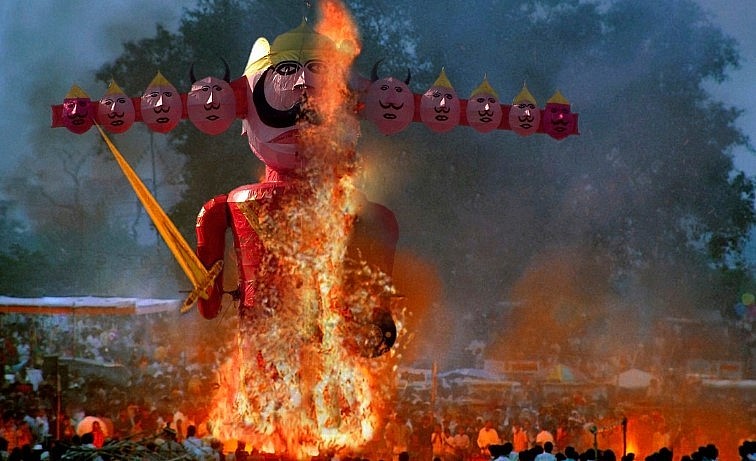 |
| Dussehra celebration |
Diwali's origins are deeply rooted in historical events and mythology.
The return of Lord Rama to Ayodhya following his victory over the demon king Ravana is a well-known Diwali tale. The lamps that lit up Ayodhya in celebration of their arrival represented the triumph of good over evil and light over darkness.
The grandeur of Diwali celebrations
Diwali celebrations usually span five days, with each day having its own customs and significance.
For the purpose of worshiping Goddess Lakshmi and Lord Kubera, lamps are lit on Dhanteras and firecrackers are burst. Choti Diwali, also known as Narak Chaturdashi, is another occasion when lamps are lit and crackers are burst.
Families get together on the main day for family prayers or to celebrate the puja ritual at home by feasting on sweet treats. Other customs like Bhai Dooj and Govardhan Puja also contribute to the joyous atmosphere.
Learn more: When To Celebrate Diwali: Key Dates, Times, Significance And Ritual
How the festival of light is celebrated in different parts of India?
The rich cultural diversity and profound unity that characterize India are reflected in Diwali, which is more than just a festival. No matter where you are in the world, you are invited to join us in celebrating Diwali and sharing the joy and light with those around us.
By reserving your bus tickets through AbhiBus, you can easily travel to any part of India and participate in the local Diwali festivities.
Diwali in North India
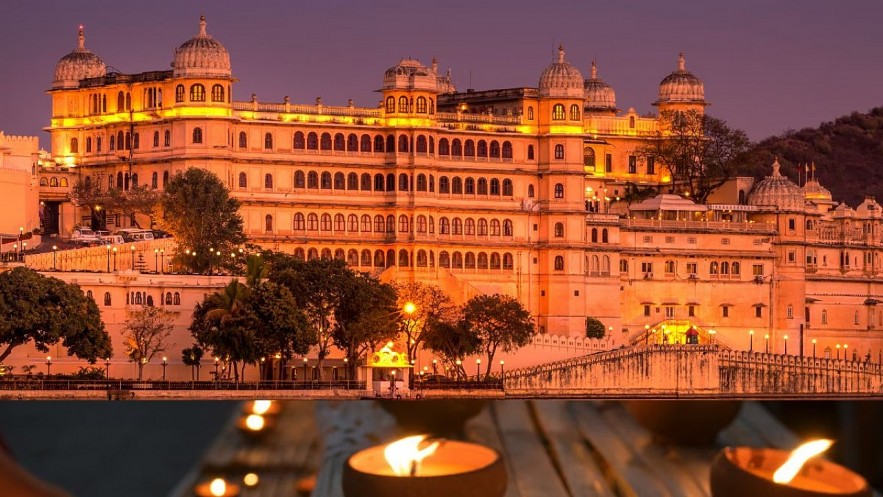 |
| Diwali in North India |
After fourteen years of exile and the defeat of Ravana, king of Lanka, the festival in northern India commemorates Lord Rama's return to Ayodhya with Maa Sita and Lord Lakshman. As a way to welcome back Lord Rama, Sita, and Laxman, the household is illuminated by a series of diyas.
In Uttar Pradesh, Punjab, Himachal Pradesh, Haryana, Bihar, and the surrounding regions, people still light diyas and set off fireworks on Diwali night. On the other hand, in Himachal Pradesh, Delhi, and Punjab, people gamble because it is seen as a lucky night.
Diwali in Northeast India
The festival in northeast India is characterized by distinct cultural elements, encompassing traditional dance and rituals. The lighting of diyas represents an embodiment of hope and positivity, illustrating a thoughtful integration of tradition and regional diversity.
A local festival known as Tihar is organized in Sikkim, celebrated by the Gorkha-Nepali community. The event recognizes various animals on specific days, such as cows, dogs, and bullocks.
Diwali in South India
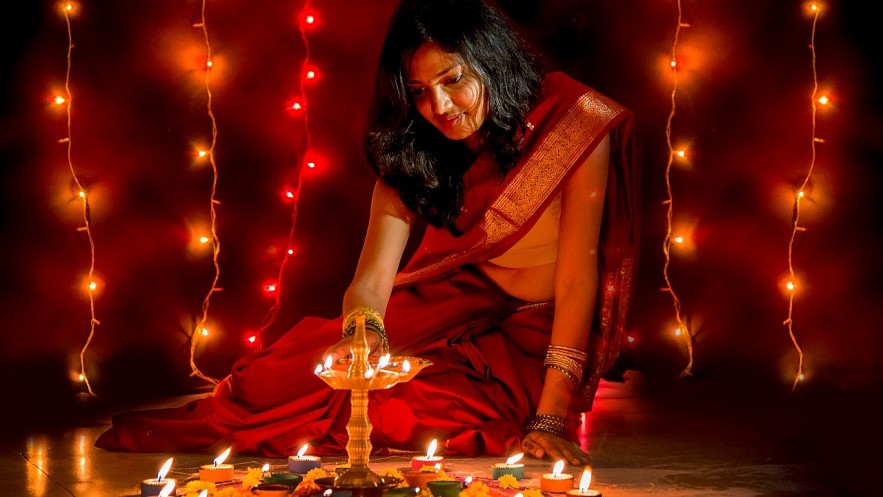 |
| Diwali in South India |
Diwali in South India is distinguished by old rituals mixed with regional customs.
In Tamil Nadu, sometimes known as Deepavali, homes feature kolam designs and payasam made in kitchens before day break so that people may have an early bath in oils.
People pray to Goddess Lakshmi and Lord Ganesha, then indulge in traditional cuisine prepared on this day.
Naraka Chaturdashi is the term used in Karnataka when fireworks follow "abhyaanga snana" celebration.
Diwali in East India
Different regions of East India observe Diwali in their own unique ways. In West Bengal, this festival honoring Goddess Kali is called Kali Puja. People pray for good fortune and safety as they erect elaborate decorations in their homes and pandals.
"Deepavali" is the name of the festival celebrated in Odisha, which includes the lighting of diyas and the preparation of traditional foods.
Diwali in West India
Diwali is celebrated in a very different way in the western Indian states, such as Gujarat and Maharashtra. Grandeur and extravagance are commonplace during the festival's celebrations, which are marked by tremendous enthusiasm. As a way to appease the goddess of riches, devotees perform the "Laxmi Puja" ceremony.
One of the most important aspects of the festivities is the colourful and lively tradition of Rangoli, in which elaborate patterns are made using colored powders. Another treasured tradition in this area is eating traditional sweets like chakli and shakarpara while setting off firecrackers.
Diwali in Central India
Madhya Pradesh and Chhattisgarh are two of the central Indian states that have their own distinct traditions when it comes to celebrating Diwali. Here, the celebration is timed to coincide with harvest, and as a gesture of gratitude, people worship their cattle and other livestock.
This festival stands out from many others in India because of its distinctive bonfire ritual and the belief that the god of death, Yama, should not be worshipped at this time.
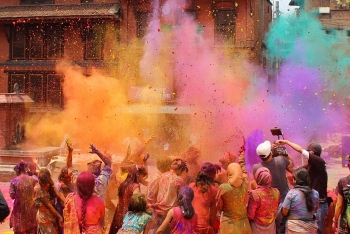 Most Popular Holidays & Festival in October in India Most Popular Holidays & Festival in October in India |
Diwali in Uttar Pradesh
The holiday is invariably observed with great enthusiasm by the populace of Uttar Pradesh. The banks of the revered Ganga, particularly in Varanasi, resonate with vibrant festivities as priests intone prayers along the shores, illuminated by the gentle glow of floating earthen lanterns.
Ayodhya, located in Uttar Pradesh, experienced magnificent Deepotsav festivities, adorning its ghats with countless earthen lamps. On the eve of Diwali, the temple city surpassed its previous achievement by illuminating approximately 22.23 lakh diyas simultaneously across 51 ghats in Ayodhya, thereby establishing a new Guinness World Record.
Diwali in Gujarat
Diwali is a time for Garba and Dandiya Raas dances in Gujarat. Reportedly, a highly auspicious Diwali tradition in Gujarat involves lighting a diya with ghee and leaving it burning through the night. The following morning, the flame is collected and used to make kajal, which is applied to ward off bad luck.
Learn more: 13 Distinctive Diwali Customs & Traditions in Different Indian Regions
Diwali in Maharashtra
In Marathi families, Diwali starts with Vasubaras, a celebration for cows. This is an interesting difference from other parts of the country.
As part of the rituals, married women pray to cows that are giving birth. This tradition shows how grateful a woman is to the cow for taking care of her and her children.
Diwali in Punjab
In Punjab, Diwali aligns with Bandi Chhor Diwas, a Sikh celebration characterized by illuminating homes and gurudwaras, fireworks, and festive meals. During Diwali, Goddess Lakshmi is worshipped by Punjabi Hindus. This celebration marks the beginning of winter in Punjab.
Diwali in Goa
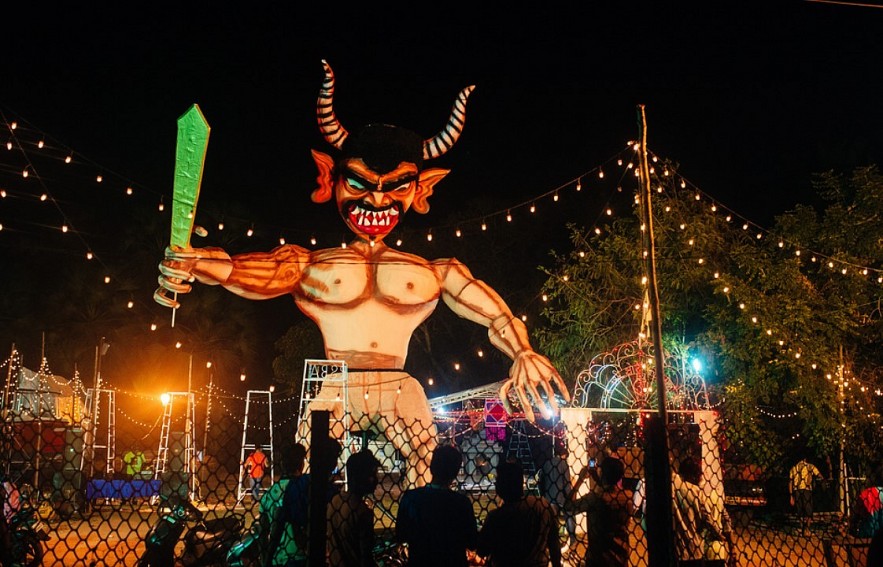 |
| Diwali in Goa |
Goa, showcasing a distinctive fusion of Indian and Portuguese cultures, celebrates Diwali with remarkable enthusiasm. The state is renowned for its impressive and large clay or metal oil lamps, referred to locally as “akash kandils,” which illuminate public spaces, homes, and churches. During this time, the Goan cuisine truly shines with traditional sweets like bebinca and ladoos, complemented by savory delights such as fish curries and prawn balchao.
In Conclusion
Regardless of the geographical location, Diwali embodies joy, unity, and hope in its essence. This is a moment to celebrate the triumph of light over darkness and virtue over vice. Diwali unifies individuals in sentiments of shared humanity and tranquility, disseminating love, joy, and prosperity.
In summary, Diwali transcends being merely a festival; it embodies life itself. As diyas illuminate and firecrackers explode in the night sky, let us unite in celebration on this Diwali, fostering happiness and joy for all.
FAQs
How and when Diwali is celebrated?
Diwali is commemorated by illuminating oil lamps, igniting fireworks, exchanging presents, and performing prayers. The festival generally occurs in October or November, contingent upon the lunar calendar. Diwali is observed diversely throughout India, featuring variations in customs, rituals, and cuisine.
How long is Diwali celebrated?
The main day of Diwali is observed on the third of the five days that it is observed. Dhanteras marks the start of the festival, and Bhai Dooj, a day honouring the relationship between brothers and sisters, marks its conclusion.
How is Diwali celebrated traditionally?
Traditionally, family get-togethers, gift-giving, the lighting of oil lamps called diyas, and the worship of deities—especially Lord Rama and Goddess Lakshmi—are all part of the celebration of Diwali.
Diwali is celebrated after how many days of Dussehra?
Diwali is celebrated 20 days after Dussehra, marking the victory of Lord Rama over Ravana. Diwali 2024 is celebrated on 31st October and 01st November.
How is Diwali celebrated in Maharashtra?
Diwali is celebrated grandly in Maharashtra, where customs include the worship of Goddess Lakshmi, the setting off of fireworks, and the consumption of traditional foods like puran poli and chakli.
How is Diwali celebrated in Rajasthan?
Rajasthan observes Diwali with equal enthusiasm, emphasizing the lighting of oil lamps, gift-giving, and the creation of lovely Rangoli patterns outside of homes. The state is renowned for its opulence and magnificence.
How Diwali is celebrated in Tamilnadu?
Deepavali, also known as Diwali, is celebrated in Tamil Nadu by lighting oil lamps and making elaborate kolam artwork. Along with visiting temples, people cook a range of customary desserts.
How is Diwali celebrated in Kerala?
In Kerala, Diwali is celebrated with the lighting of oil lamps and the worship of Lord Krishna. The festival is marked by the preparation of unique sweets and snacks like avalosunda and neyyappam.
How Diwali is celebrated in Goa?
Goa celebrates Diwali with a feast of traditional Goan dishes like bebinca and fish curries, as well as a grand lighting of Akash Kandils, reflecting a blend of Indian and Portuguese cultures.
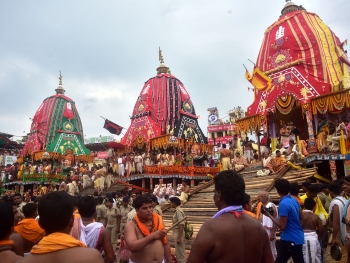 12 Most Popular Holidays/Festivals in India for July 12 Most Popular Holidays/Festivals in India for July Festivals in July in India include a few of the important days in India such as Bakri Eid. Read to know about all the special ... |
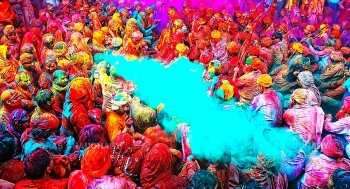 Top 15 Most Popular Holidays & Festivals in India for March Top 15 Most Popular Holidays & Festivals in India for March March, the month of colors, music, and entertainment, is the perfect time for experiencing the cultural beauty of India. The numerous and varied festivals offer ... |
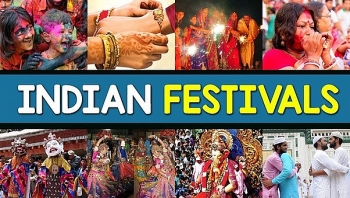 10 Most Dangerous Religious Festivals In India 10 Most Dangerous Religious Festivals In India India is one of the only few countries on this planet with a lot of different ethnic groups that managed to survive on the same ... |
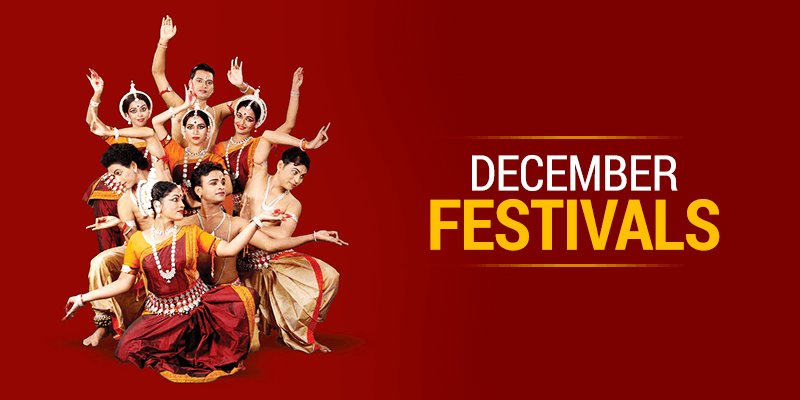 Top 10 Most Popular And Unique Festivals in India of December Top 10 Most Popular And Unique Festivals in India of December Since December is the last month of celebrations in India, the festivities that take place during this time are especially meaningful to the locals. See ... |

